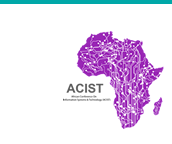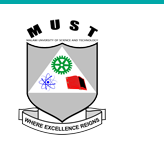Location
Virtual - Microsoft Teams Meeting
Start Date
2-7-2020 4:15 PM
End Date
2-7-2020 4:30 PM
Timezone
Ethiopian Time
Start Date (EST)
July 2020
End Date (EST)
July 2020
Description
The development of websites and portals are main components of the e-Government strategy implementations for the last nine years in Ethiopia. However, services optimizations with usability and accessibility are key issues of Ethiopia e-Government services development.
Therefore, the ultimate goal of this study is creation of usable, accessible and sustainable Ethiopian eGovernment websites with four stage of research analysis, through proposed model. The investigations results are used to provide a clear picture of what needs to be improves from management and user point of views and also from other stakeholders of e-Government services. This study applies mixed methods of data collection and analysis, that integrating quantitative and qualitative data, using questionnaires’ and interviews to identify the key usability and accessibility issues of Ethiopia e-Government websites services. The data collection and analysis are primarily from management and users’ point of views are analyzed and discussed and also interpretations of the data are presented using factor analysis and other analytical techniques. Afterward, expert based e-Government website evaluations are presented and discussed using heuristics evaluation principles’. Finally, automatics accessibility evaluation based on WCAG 2.1 guidelines using online WAVE Accessibility Tool assessment results are analyzed, presented and discussed.
Usability and Accessibility Model for E-Government Websites in Ethiopia
Virtual - Microsoft Teams Meeting
The development of websites and portals are main components of the e-Government strategy implementations for the last nine years in Ethiopia. However, services optimizations with usability and accessibility are key issues of Ethiopia e-Government services development.
Therefore, the ultimate goal of this study is creation of usable, accessible and sustainable Ethiopian eGovernment websites with four stage of research analysis, through proposed model. The investigations results are used to provide a clear picture of what needs to be improves from management and user point of views and also from other stakeholders of e-Government services. This study applies mixed methods of data collection and analysis, that integrating quantitative and qualitative data, using questionnaires’ and interviews to identify the key usability and accessibility issues of Ethiopia e-Government websites services. The data collection and analysis are primarily from management and users’ point of views are analyzed and discussed and also interpretations of the data are presented using factor analysis and other analytical techniques. Afterward, expert based e-Government website evaluations are presented and discussed using heuristics evaluation principles’. Finally, automatics accessibility evaluation based on WCAG 2.1 guidelines using online WAVE Accessibility Tool assessment results are analyzed, presented and discussed.



